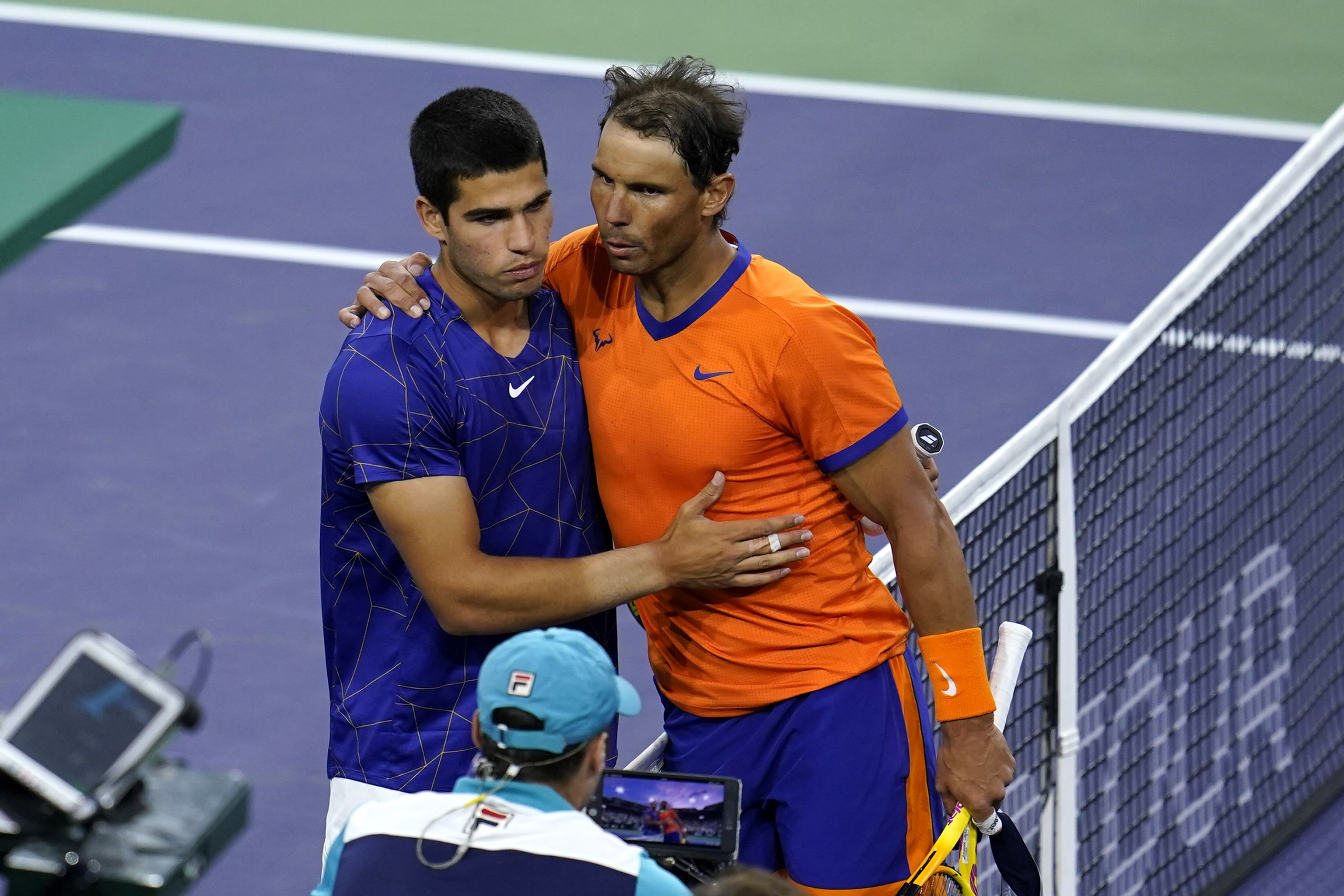In the Village, two colleagues, Rafa Nadal and Carlos Alcaraz, are always together: they sleep in the same apartment, have breakfast, lunch, and dinner at the same table, and usually respond to the same photo requests. There are many requests, a lot of them, some individual, most joint. David Ferrer, captain of the Spanish team, mentions that he meets them for lunch, and they take forever to sit down. By the time they do, the food is already cold.
Since arriving in Paris at the beginning of the week, the two best tennis players in the history of Spain have turned their good relationship into friendship, and their camaraderie is evident in every training session at Roland Garros. However, a question remains: Will they understand each other well on the court? Before their debut today at the Olympic Games against the Argentine pair formed by Máximo González and Andrés Molteni, they had never played together. Although Nadal has plenty of experience - he was an Olympic champion in Rio 2016 with Marc López - Alcaraz is almost a novice in doubles. He has only played six professional matches, between 2021 and 2022, four with Pablo Carreño and two precisely with López.
"It won't be easy, it's a total debut"
"I will do what he tells me, I'll keep my mouth shut and comply," Alcaraz commented to EL MUNDO half-jokingly, half-seriously. Because the recent champion of Roland Garros and Wimbledon has plenty of tennis at these Games, but lacks experience. "It won't be easy for them to gel; it's a total debut. The key will be to win the initial matches and for Carlos to listen to Rafa's instructions. They are two great singles players and they have to exploit their many resources individually. They can't become a pair in just a few days," analyzes Vivi Ruano, former world number one in doubles, winner of 11 Grand Slam titles in pairs, and two Olympic silvers in Athens 2004 and Beijing 2008.
"There are two types of pairs: doubles specialists and 'singles' players who come together for a specific tournament. Rafa and Carlos will be that type of pair, but that's not bad. Each covers their half of the court, and that's it. They are both excellent, they won't be a classic pair, and they don't need to be. Sergio [Casal] and I were very coordinated, and in Barcelona 1992, Boris Becker and Michael Stich, who didn't even speak to each other, beat us," adds Emilio Sánchez Vicario, also a former world number one, winner of five Grand Slam titles, and the silver medalist in Seoul 1988.
"Perhaps they don't have a typical doubles game, but they will control the matches from the baseline, they will make a difference there. Both have great skills, they are among the best players in history, and if you mix it all together, here, at Roland Garros, it's clear that it's a winning combination," concludes Marcel Granollers, current number one in doubles, a member of the other Spanish pair at these Olympic Games - alongside Carreño - and training partner of Nadal and Alcaraz these days.
Indeed, this Friday, at the Philippe Chatrier, the central court of Roland Garros, the four Spaniards who will compete in doubles gathered for one last training session before their debut. Early in the morning, Nadal and Alcaraz had a full session, won 6-3 in a trial set against Granollers and Carreño, and clarified two things. Firstly, that Nadal will play on the right and Alcaraz on the left, meaning they will cover the center with their forehands. And secondly, that Nadal will play the match despite the discomfort he is experiencing.
His bandage on the right thigh indicates something is going on, and there is still a possibility that he may withdraw from the individual tournament before his debut tomorrow against Hungarian Marton Fucsovics. However, the intensity of the training session showed a determined tennis player, no intention of giving up. Alcaraz also appeared focused, so much so that he did not attend the opening ceremony because today he not only has the doubles debut but also his first individual match against Lebanese Hady Habib on Suzanne Lenglen.
